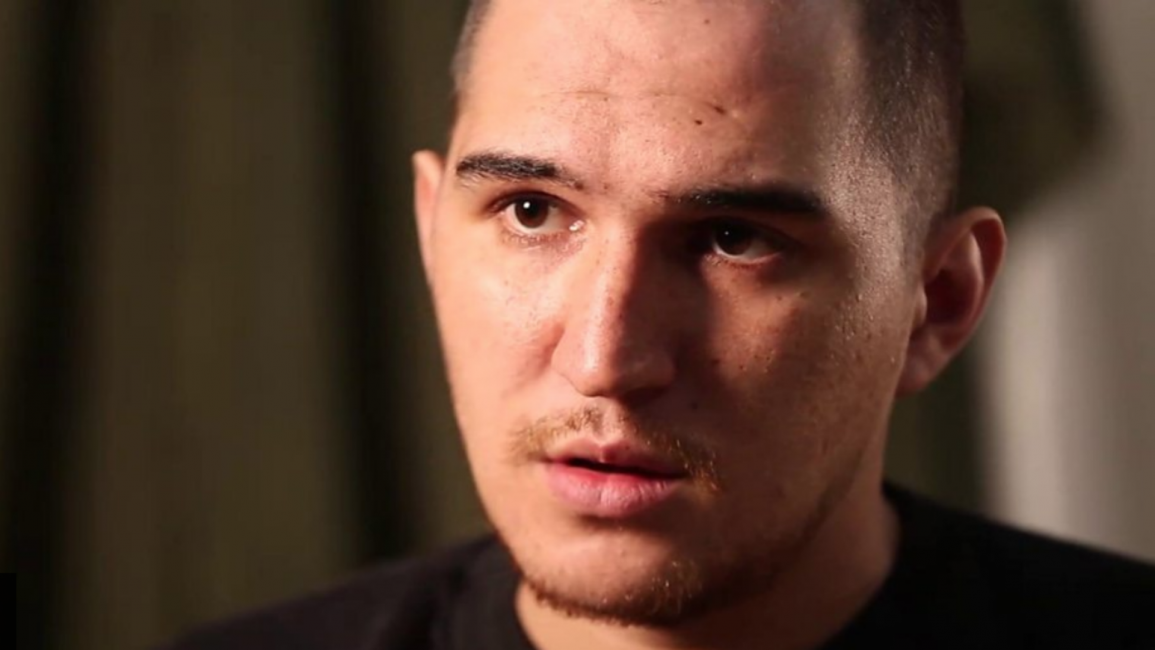Shamima Begum's Dutch IS husband wants to head home
Yago Riedijk, who is being held in a Kurdish-run detention centre in northeast Syria, married Begum days after she arrived in territory held by IS when he was 23 and she was 15, he told BBC television.
Begum, 19, from east London and now in a refugee camp, hit global headlines recently when she said she would like to return to Britain, but was instead stripped of her British citizenship by the government, citing security concern.
Riedijk, who is 27 and says he now rejects IS despite having fought for the jihadist group, says he wants to return home to the Netherlands with his wife and their newborn son. Their first two children died.
In a first extract from the interview released by the BBC, he was asked if he thought marrying a girl of that age was acceptable.
"When my friend came and said there was a girl who was interested in marriage, I wasn't that interested because of her age, but I accepted the offer anyway," he replied.
"We sat down and she seemed in a good state of mind. It was her own choice, she was the one who asked to look for a partner for her.
"Then I was invited and yeah, she was very young and it might have been better for her to wait a bit. But she didn't, she chose to get married and I chose to marry her."
Riedijk, from Arnhem, told the BBC that he had been imprisoned and tortured after IS suspected him of being a Dutch spy. He surrendered to Syrian fighters.
The case of Begum has highlighted a dilemma facing many European countries, divided over whether to allow jihadists and IS sympathisers home to face prosecution or bar them as the so-called "caliphate" crumbles.
Begum's case has dominated the headlines in the UK press in the past weeks since she surfaced in the al-Hol refugee camp in northern Syria after running away from home in Bethnal Green, London, to join the Islamic State group in 2014.
Begum was stripped of her British citizenship in a decision by UK Home Secretary Sajid Javid that had ignited controversy on all sides of the debate. Her family have said they will legally challenge the decision.
Although her initial interviews with media outlets were unrepentant, Begum has since said she would like to return to the UK and become an "example of how someone can change".
Birth-right citizenship
In the US, a judge is also considering the return of Hoda Muthana, a US-born woman who joined the Islamic State group in 2014.
US Secretary of State Mike Pompeo claimed that Muthana was not a US citizen and would not be allowed to return to the country, despite her having been born in New Jersey and raised in Alabama.
Ahmed Ali Muthana, the father of the 24-year-old who says she regrets joining the extremist group's so-called "caliphate", filed an emergency lawsuit against the Trump administration last week asking it to affirm his daughter was a US citizen.
"Upon her return to the United States, Mr. Muthana's daughter is prepared and willing to surrender to any charges the United States Justice Department finds appropriate and necessary," said the lawsuit filed with the US District Court in Washington.
A federal judge now says he will agree to consider the lawsuit and Muthana's return to the US with her 18-month-old son, AP reported.
She is currently living in the al-Hol refugee camp in northern Syria, alongside almost 50,000 other people, most of whom are women and children who recently fled from the last pocket of Islamic State territory in Baghouz, eastern Syria.
Conditions at the camp are rapidly deteriorating and supplies are becoming scarce as its population booms, humanitarian organisations have said.
It is extremely difficult for the United States to strip a person of citizenship, a step taken by Britain in the case of homegrown extremists such as Shamima Begum.
Trump's refusal to return Muthana to the US came even though he is pushing other Western countries to repatriate hundreds of suspected Islamic State members as the United States prepares to withdraw troops from Syria.
Follow us on Twitter: @The_NewArab



